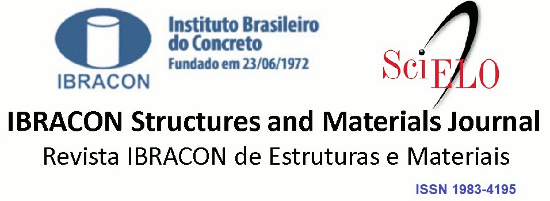Abstract
Over the past decades, extensive research has been carried out to reduce the environmental impacts associated with the cement and concrete production. Life-cycle assessment (LCA) enables the quantification of the environmental loads and offers a useful perspective to scientifically support such studies. In this paper, we demonstrate LCA’s contribution to the selection of low environmental impact concretes, using breakwater coreloc components as a case study. A detailed experimental study was designed for the selection of an alkali activator for blast furnace slag (bfs) to produce concrete suitable for breakwater structures; for the evaluation of concrete properties and for the performance assessment of full scale elements in the field, as well as in the laboratory. Sodium silicate-activated bfs concrete mixtures achieved the best results in terms of performance requirements. Our cradle-to-gate life-cycle assessments showed that, though this chemical activator indeed produces lower global warming potential mixtures than the reference portland CP V-ARI concrete, it induces relevant impacts in several environmental categories. Such information is critical when selecting and optimizing low-impact concrete mixture design, and would not be detected in typical experimental studies that are exclusively guided by compliance with performance requirements.
Keywords:
life cycle assessment; breakwaters; alkali activated binders; blast furnace slag

 Source: the authors
Source: the authors
 Source: the authors
Source: the authors
 Source: the authors
Source: the authors
 Source: the authors
Source: the authors
 Source: the authors
Source: the authors
 Source: the authors
Source: the authors
 Source: the authors
Source: the authors
 Source: the authors
Source: the authors
 Source: the authors
Source: the authors
 Source: the authors
Source: the authors